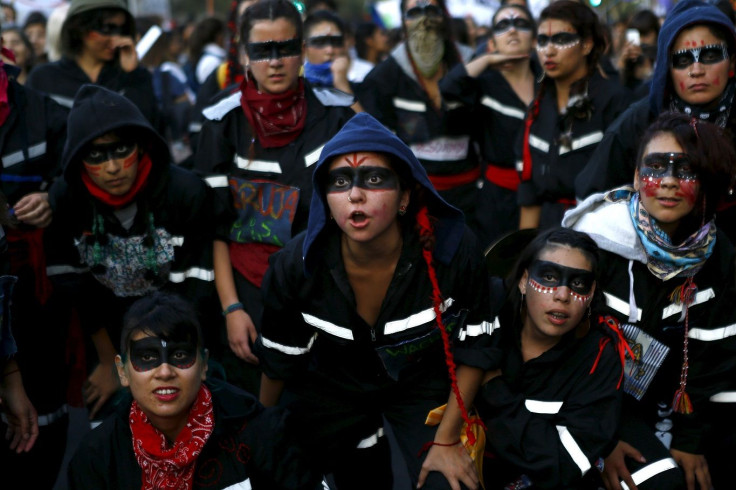How the Internet empowers feminism on International Women’s Day

International Women’s Day, celebrated in many countries around the world every year on March 8, is slowly beginning to go viral as feminists, women advocates, champions for women’s rights and their advocates have taken to the Internet by storm. Interacting with like-minded women (and men), posting views on social media and joining the greater community of social media is the most feasible action for many.
The real meaning of International Women’s Day is fighting for and making a permanent stand on gender equality. Womanhood in itself is celebrated and protected from marginalisation, which still happens in countries that are repressed by harsh regimes, restrictive religions or inclusive social policies that do not reflect an appreciation of diversity.
UNESCO reports that 63 million young girls in 200 countries still do not have access to adequate schooling. Sixteen million other girls ages 6 to 11 will not even finish primary school, compared to 8 million of their brothers. The greatest number of gender disparities can be found in the Arab States, sub-Saharan Africa and South and West Asia.
Still, these numbers, no matter how staggering or deplorable, can still appear abstract or distant from those who have not experienced the same suffering. That’s why success is “making it feel it in their bones,” said actress Emma Watson, the UN Women Global Ambassador. In its coverage of UN Women’s celebration of International Women’s Day in Manhattan, the Associated Press says that the message for gender equality was discussed and re-enacted in museums, galleries, and theatres. Together with UN Women Executive Director Phumzile Miambo-Ngcuka, Watson flew to New York to launch the week-long event.
Impact — or that visceral appeal that Watson was alluding to — can now be multiplied with the involvement of social media and the use of the Internet. “The power of the online communities can never be underestimated when it comes to change and transformation,” says Gil Amelio, Chairman of 5BARz International Inc., which creates network extenders that enhance the power of cell signals in very remote areas or areas with dense populations and structures.
“Aside from the speed in delivering the message, it bonds people together for a short period of time, making them aware of important issues and encouraging them to be agents of change. Knowing and seeing that others are with you gives you that inner strength to take on very difficult challenges to realize a dream or an idea,” he added.
To start with, Watson lit up the Empire State Building in the colour of pink — and got a very supportive tweet from “Harry Potter” author J.K. Rowling. Watson appeared as Hermione in the books’ film versions. As reported by People magazine, the Watson-Rowling mutual-admiration society tweets spread to their thousands of fans, bringing greater awareness to the causes of International Women’s Day.
US Democratic presidential candidate Hillary Clinton quoted Eleanor Roosevelt on Twitter to bring awareness on the issue as well. Stars Meryl Streep, Oprah Winfrey, Tina Fey, and Shonda Rhimes came out in support of the programs of ONE, the anti-poverty organisation that is working towards women’s economic empowerment and education.
Some celeb tweets also showed the stars getting involved, asking their fans to do likewise. Reese Witherspoon spent the day with the rising lady leaders in Girls Inc, while Victoria Beckham’s tweet showed her bonding with African-American schoolchildren.
Even male celebrities came out online to ally with their women colleagues and friends. Indian cricket star Virat Kohli’s rweet with hands folded in the traditional greeting of respect, asking forgiveness in behalf of the male species their misogynistic treatment of women.
Probably the weightiest of all was Canadian Prime Minister Justin Trudeau, who elevated his already high ratings by coming out with an open online letter in the Globe and Mail, expressing wholeheartedly his support for feminism. Saying he and his brothers were raised to have feminist values by a feminist mother, Trudeau asked his fellow males to let go of their prejudices and see women as true partners. He wrote, “We [men] need to be part of this conversation. We need to speak out in support of gender equality.”
Google Doodle’s own tribute to International Women’s Day was probably the most powerful. As reported by Fortune Magazine, the Internet giant filmed and showed 330 young girls in 13 countries, each one declaring in confidence her passion for a better life and a dream of what she wants to achieve. Google Doodle’s hashtag, #OneDayIWill, remains up and running, inviting women all over the world – regardless of age, religion, race, country and socio-economic status – to stand up, be proud, and declare their worth for all to hear.





















